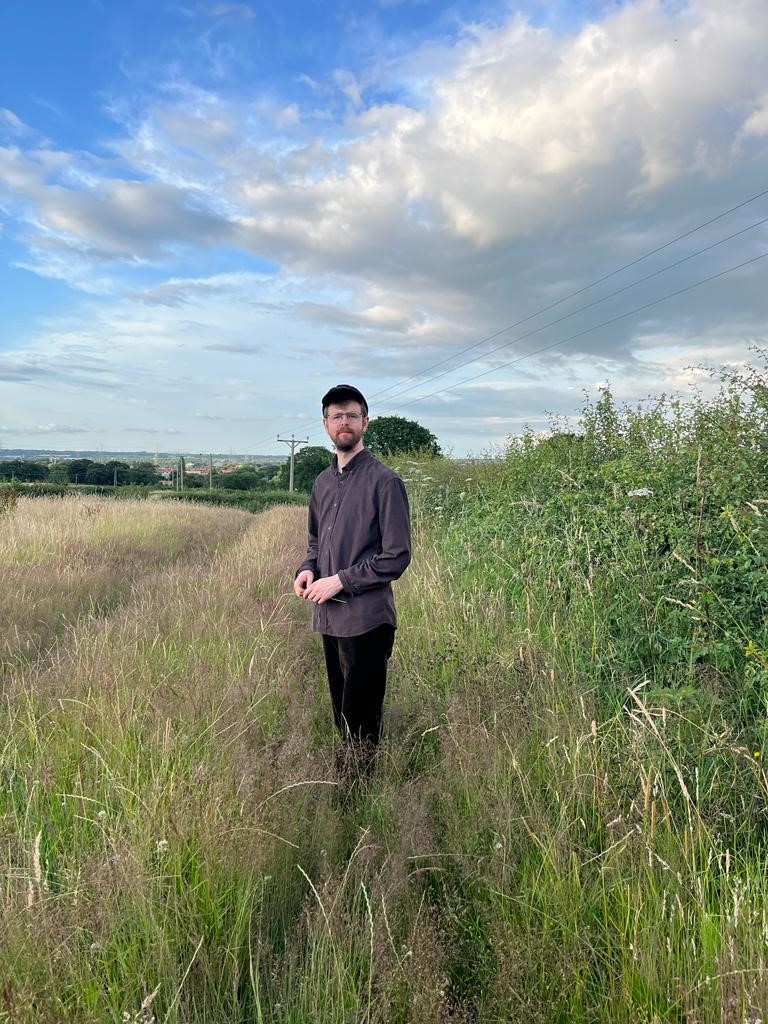Dr. Aaron Bradshaw

aaron.bradshaw@geo.hu-berlin.de
Postal address
Humboldt-Universität zu Berlin
Department of Geography
Geography of Gender in Human-Environment Systems
Unter den Linden 6
10099 Berlin
Office location
Rudower Chaussee 16
Open office hour
As per appointment
-
Curriculum Vitae
Qualifications
Grad Cert Psychosocial Studies, Birkbeck College (2019)
PhD Cellular Neuroscience, UCL (2018)
BSc With Industrial Experience Pharmacology, University of Leeds (2014)
Career
Since July 2023: Visiting Scholar in the Geography Department at Humboldt-Universität zu Berlin
01/02/2020-01/02/2022: Postdoctoral Research Associate, CurePSP funded project “The Influence of TRIM11on Tau, Aggregation, Release, and Propagation”, University College London.
01/08/2018 - 01/02/2020: Postdoctoral Research Associate, Michael J Fox Foundation funded project “Mitofusin ubiquitination as a biomarker for Parkinson’s disease”, University College London
01/07/2012 - 01/07/2013: Researcher (international placement), Neuroscience Department, Mayo Clinic, Florida -
Academic Positions
Since July 2023: Visiting Scholar at Humboldt-Universität zu Berlin, Geography Department
01/02/2022 – 01/02/2023: Honorary Postdoctoral Research Associate, Department of Clinical and Movement Neurosciences, University College London -
Fellowship and Awards
March 2023: Scholarship awarded by Humboldt-Universität zu Berlin to conduct research on urban microbial ecologies.
July 2018: Studentship awarded by the Alzheimer’s Society to extend doctoral research.
January 2015: Doctoral Studentship awarded by the Alzheimer's Society (2015-2018).
September 2014: Bowmer Prize for Pharmacology, awarded for academic achievement.
September 2012: AstraZeneca Prize, Scholarship awarded for academic achievement.
September 2011: Covance Pharmacology Prize, Scholarship awarded for academic achievement; Crabtree Award, Scholarship awarded for academic achievement.
-
Research (interests)
My academic training and background is in the natural sciences. Now I am interested in the social, cultural, political, and material relations between humans and other-than-human forms of life, particularly microorganisms. My approach to researching human-microbial relations is highly interdisciplinary, spanning more-than-human geography, posthumanist thought, political ecology, and environmental microbiology. I have a particular interest in the evolution of microbial ecologies in urban contexts, and the emergence of historically specific microbial communities that are attuned to anthropogenic conditions, especially pollutants. My research asks how humans have affected microbial evolution, and how microbial agency contributes to human societies. The urban realm has recently become of particular relevance to my research, as a site where human-microbial relations are particularly intense, heterogeneous, and dynamic. I am interested the environmental history of urban waterways – canals and rivers, and their roles in shaping urban evolution. Many of these sites now contain different forms of microbial ecologies, from sewerage works and water treatment plants to abandoned and degraded infrastructures which serve as ecological niches for emerging microbial communities.
-
Publications (selection)
First author publications in peer-reviewed journals
Bradshaw, A. (2023, October 19). The invisible city: The unglamorous biogeographies of urban microbial ecologies. DOI: https://doi.org/10.31235/osf.io/drcuw [Author preprint]
Bradshaw, A (Forthcoming). Digital methods for attuning to microorganisms in a polluted urban river. Cultural Geographies (Digital Ecologies in Practice Special Collection).
Bradshaw, A. (2023). Abundance and absence: Human-microbial co-evolution in the Anthropocene. The Anthropocene Review. Epub ahead of print: https://doi.org/10.1177/20530196231153925
Bradshaw, A (2022). Can microbes be active participants in research? Developing a methodology for collaborating with plastic-eating microorganisms. Environmental Humanities 14, no.10: 284-302. DOI: https://doi.org/10.1215/22011919-9712379
Bradshaw, A (2021). Microbiological literacy and the role of social science: A response to Timmis et al. Environmental Microbiology 23, no.11: 6350-6354. DOI: https://doi.org/10.1111/1462-2920.15808
Bradshaw, A., et al. (2021). The PINK1-Parkin mitophagy machinery is not functional in peripheral blood mononuclear cells. PLoS one 16, no.11: e0259903. DOI: https://doi.org/10.1371/journal.pone.0259903
Bradshaw, A (2021). Accessing microbial lifeworlds: weird entanglements and strange symbionts. Pulse: Journal of Science and Culture 7. https://discovery.ucl.ac.uk/id/eprint/10137350/1/accessing%20microbial%20lifeworlds.pdf
Chapters in edited collectionsBradshaw, A (2023). Posthuman(izing) biomedicine: The role of the microbiota in Parkinson’s disease research. In Posthumanism in Practice eds. Christine Daigle and Matt Hayler. Routledge. pp. 31-42.
Bradshaw, A (2022). Back from the dead: tailings ponds in the Albertan oil sands mining operations. In The Anthropocene and the Undead eds. Simon Bacon. (2022) Lexington. pp. 197-208.
Bradshaw, A (2021). Bio-deconstructing bioremediation: tailings ponds, oil-eating bacteria, and microbial agency. In Geographies of the Anthropocene Book Series eds. Charles Travis and Vittorio Valentino. Il Sileno Edizioni. pp. 251-265. Available at http://www.ilsileno.it/geographiesoftheanthropocene/wp-content/uploads/2022/01/Vol-4-n-2-GoA.pdf
-
Other writing - Magazines, blogs, and websites
Bradshaw, A (2022). Unexpected pleasures: Slowing down, sensing moss. Informa 15. Photo essay. Available at https://informa-com.vercel.app/visual-essay/slowing-down-sensing-moss
Bradshaw, A (2020). Microbial life. Genealogy of the Posthuman. Lexicon entry. Available at https://criticalposthumanism.net/microbial-life/
Bradshaw, A (2020). The unusual chemistry of the tar sands. It's Freezing in LA (2020). Blog post. Available at https://itsfreezinginla.com/articles/the-unusual-chemistry-of-the-tar-sands
Bradshaw, A (2020). Chemical sensitivity. Somatosphere. Para-academic blog post. Available at http://somatosphere.net/2020/chemical-sensitivity.html
Bradshaw, A (2020). Bacteria and the biosphere. It’s Freezing in LA. Magazine article. [print only, 1,500 words]
-
Teaching and Supervision
2021-2022: Supervision of MSc library projects on the microbiome (UCL)
2019-2022: Co-supervision of MSc student lab-based project in cellular neuroscience
2015-2018: BSc Basic and Applied Medical Sciences (contributions)
